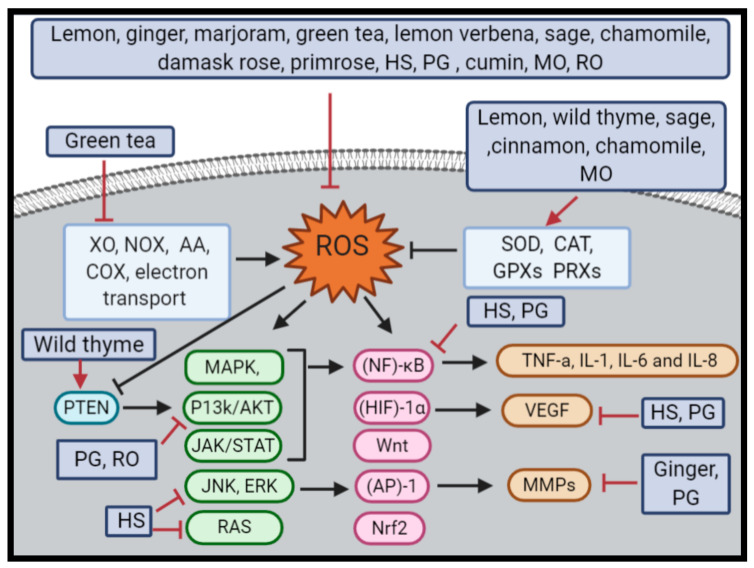Figure 2.
The role of each herb in fighting cancer through oxidative stress pathways. ROS and free radicals are reduced by lemon, ginger, marjoram, green tea, lemon verbena, sage, chamomile, damask rose, primrose, Hibiscus sabdariffa L. (HS), Punica granatum (PG), cumin, Mellissa officinalis L. (MO) and rosemary (RO). Moreover, antioxidant enzymes are increased via lemon, wild thyme, sage, cinnamon, chamomile and MO, on the other hand, green tea reduce ROS-inducing enzymes. Clearly, HS and PG reduce the activity of (NF)-κB, which induce the proinflammatory cytokines (e.g., TNF-a, IL-1, IL-6 and IL-8), and they repress VEGF, besides PG inhibition activity on P13k/AKT pathway and HS inhibition activity on JNK and RAS pathways. As observed, ginger and PG paly important role on MMPs inhibition. Wild thyme increases the activity of PTEN, which consequently reduce P13k/AKT pathway. Finally, RO have the ability to scavenge free radicals and have a role in prevention of Akt.

